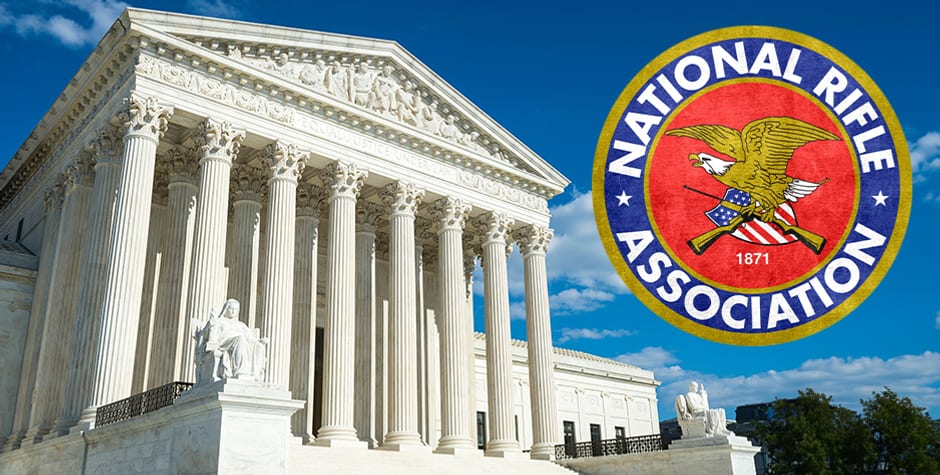Unanimous Supreme Court Sides With NRA To Forbid Government Actors From Pressuring Private Companies To Unconstitutionally Censor and Punish Americans
Listen tothis article
In a bell-ringing victory for the First Amendment, a unanimous U.S. Supreme Court ruled that government regulators cannot enlist the private companies that they regulate to act as censorship agents to punish citizen viewpoints that the government dislikes.
The ACLJ had filed an amicus (friend of the court) brief in the case National Rifle Association of America v. Vullo. In it, we supported the NRA’s lawsuit that was filed against Ms. Vullo, who was the head of New York’s powerful Department of Financial Services (DFS). As the Court noted in its decision, the lawsuit asserted that Vullo, in conjunction with then-New York Governor Cuomo, had conducted a pressure campaign to use insurance companies to weaken gun rights by “weakening the NRA,” specifically by getting those companies to refuse to do business with the NRA.
We argued that when New York’s head of DFS urged insurance companies and financial institutions to blacklist the NRA because of its Second Amendment advocacy, it constituted a crystal-clear free speech violation. We wrote in our brief that prior Supreme Court case law
forbid[s] government pressure deliberately aimed at regulated intermediaries for the purpose of using them to target and punish an unregulated citizen advocacy third party like NRA, primarily because of that third party’s position on matters of public concern, here, regarding gun rights.
In the same vein, the Supreme Court, with no dissents, has now ruled in the NRA case:
Ultimately, the critical takeaway is that the First Amendment prohibits government officials from wielding their power selectively to punish or suppress speech, directly or (as alleged here) through private intermediaries.
This victory may possibly bode well for a similar case, Murthy v. Missouri, which is set to be decided by the Supreme Court in the coming weeks. In the NRA case, it was the state government pressuring private companies to blacklist a Second Amendment group.
In the Murthy case, by contrast, it was the federal government that hit the First Amendment tripwire. Lower courts have determined that the White House and several agencies operating under its Executive Branch oversight, including the FBI and the Department of Homeland Security, pressured Big Tech social media giants Google, YouTube, Twitter, and Facebook to censor citizen posts and videos that contained opinions contrary to the position of the Biden Administration.
We filed an amicus brief to the Supreme Court in the Murthy case as well, arguing against those private, closed-door meetings that the Biden Administration conducted with Silicon Valley giants in an effort to get those companies to stifle the online political speech of Americans during the 2018 midterms and the 2020 national election. The danger of that scheme to our political system cannot be overstated. Those anti-speech tactics can create a skewed election process by ensuring an uninformed electorate.
While we cannot predict the outcome in Murthy, we are encouraged by this language of the Court in its NRA opinion, condemning such secret government attempts to thwart free speech:
[W]here, as here, a government official makes coercive threats in a private meeting behind closed doors, the “ballot box” is an especially poor check on that official’s authority.
Win or lose, you can depend on the ACLJ to continue fighting in the courts for your First Amendment and Second Amendment rights and for our constitutional form of government.
